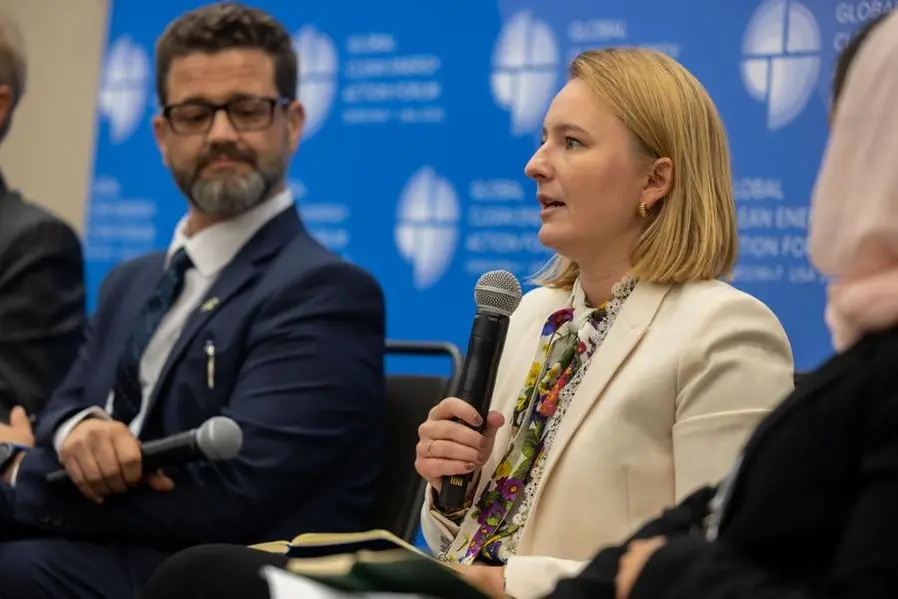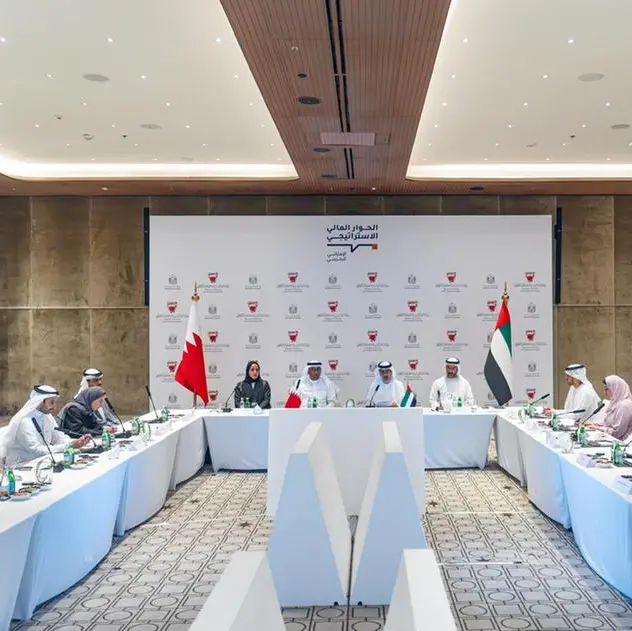PHOTO
The King Abdullah Petroleum Studies and Research Center (KAPSARC) held a side event at the Global Clean Energy Action Forum (GCEAF) in Pittsburgh on September 23, 2022 to advance knowledge on carbon capture technologies and their widespread applications.
The side event on ‘Rapid Innovation and Deployment of Carbon Capture, Utilization, and Storage (CCUS): Key Enablers’ highlighted the critical role of CCUS technologies in net-zero energy systems.
Panelist Lee Beck, the Senior Director of Europe for the Clean Air Task Force, highlighted CCUS technologies as an overlooked solution to decarbonize difficult-to-abate sectors, including emissions from heavy industry in many regions, such as the U.S. and Europe.
"We're seeing firsthand how devastating the energy crisis is in Europe. One-third of German companies see it as an existential threat, and many manufacturing facilities have already shut down," Beck said.
CCUS has enormous potential to significantly reduce greenhouse gas emissions, making it an essential technology for many countries that will continue to use hydrocarbons for energy and industry for many decades. However, it requires commitment by policymakers and the international financial community to achieve its promise. Beck emphasized that "European countries expect to invest more than 15 billion euros to alleviate the crisis – this includes keeping coal mines open longer than planned for coal repowering – so we need to ensure that the new energy infrastructure we are building contains CCUS-compatible paths for carbon mitigation."
"Energy-producing countries have the skills and resources to store large amounts of carbon," added Dr. Wolfgang Heidung, KAPSARC Senior Visiting Fellow. "They can use these technologies to complement and support their decarbonization targets effectively and efficiently."
Colin Ward, KAPSARC Research Fellow, remarked that, "every update to the net-zero pathway gets steeper, and includes more CCUS… For those that invest in research, pilots, and particularly scaling up, this is an opportunity." He clarified that CCUS technologies don't just apply to advanced economies. "Using CCUS in developing nations depends on their economies and who their customers are. If you supply energy to developed countries, then CCUS benefits both of you."
He also stated that the discussions at the Forum surrounding CCUS had become boring "…but this is a GOOD thing. CCUS discussions [have] matured, as evidenced by the fact that we are not discussing it as a magical solution and are instead concentrating on its finance and insurance aspects."
Despite the essential role of CCUS as highlighted by the global scientific community, skepticism remains around its commercial viability and the potential for value creation from captured carbon. "CCUS is a vital solution for the oil and gas sector, yet we should recognize its broader applications” such as cement and steel production, according to Dr. Hasan Muslemani, Head of Carbon Management Research for the Oxford Institute for Energy Studies. “When evaluating the applicability of CCUS to various industries, we must take into account geography, industry, and policies because every business model is unique.”
According to Fortune Business Insights, the global CCUS market will grow at a rate of 19.5% annually reaching USD 7 billion by 2028. In 2020, the market was valued at USD 1.96 billion. This growth is attributed to factors such as the increasing partnerships between industry giants to commercialize CCUS technologies by completing large-scale production facilities and the increasing demand to lower carbon emissions.
The side event was moderated by Dr. Hossa Al Mutairi, Fellow at KAPSARC and featured a unique panel of experts consisting of Colin Ward; Dr. Wolfgang Heidung; Dr. Hasan Muslemani, and Lee Beck.
6,100 people attended the Forum, which was a joint convening of the 13th Clean Energy Ministerial and the 7th Mission Innovation Ministerial. It gathered government leaderss representing most of the world’s GHG emissions and 90% of public investment in clean energy, international organizations, clean energy financiers, industry leaders, unions, non-governmental organizations, young professionals and tech innovators.
-Ends-




















